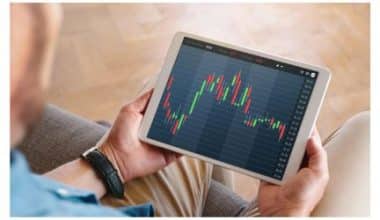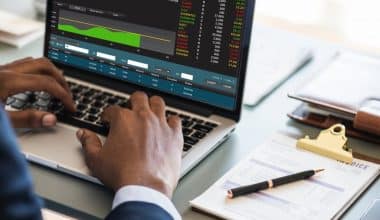Speculating on or hedging against the future value of a variety of assets, such as stocks, bonds, and commodities, is possible through futures trading. Compared to trading stocks, trading futures can offer significantly higher leverage, which increases the potential for very large returns but also significantly increases the risk. Futures can add some much-needed diversification to your assets if you know how futures markets operate and how they might fit into your portfolio. To know more about stock futures investing, How it’s calculated, and the best apps for getting them, this post is right for you.
Stock Futures Investing
Market participants frequently refer to futures on stock indexes when they use the term “stock market futures.” Regardless of the underlying product, a futures contract is an arrangement between parties to exchange an asset at a particular price and date in the future.
What Are Stock Futures?
Stock market futures are agreements that require both the buyer and the seller to sell a particular stock index at a specific price before or on a specific date. Regardless of the market price at the time the futures contract expires, the buyer of the contract must purchase the specified asset at the price stated in the contract. Futures could be based on:
- Indices
- Commodities
- Bonds
- Specific stocks
- Other assets
How Do Stock Futures Work?
Stock market futures allow investors to set future stock index prices. S&P 500 and Nasdaq 100 stock futures are the most traded. Stock index futures contracts protect buyers and sellers from post-contract price movements.
A contract between two parties is established to buy or sell a specific amount of the underlying asset for a predetermined price on a specific date in the future. The parties may end the agreement before the expiration date, but it must be finished before that time. As an illustration, a buyer of a stock index futures contract with a September expiration date could sell it to a different party in July.
Why Do Investors Trade Futures?
There are various reasons why investors trade futures:
#1. Futures May Have Lower Costs Than Stocks.
Trading futures can be less expensive than straight stock purchases. Futures transaction commissions are relatively cheap and only applied after the contract has been fulfilled. Internet brokerages offer free stock trading, making futures trades less profitable.
#2. Investors have the Option to Speculate on Taking Larger Positions.
Furthermore, because stock futures are traded on margin, it is possible to speculate on a considerably greater position size than it would be if an investor were to hold a stake directly in the underlying asset. Leverage is at work in this situation, but it works both ways; if your position swings against you, you’ll suffer more losses than if you had simply traded the underlying asset.
#3. Investors Can Purchase an Asset Without Having any Money.
Futures can give you the chance to buy an underlying asset even if you don’t have the money to do so. For instance, if a stock market investor waits until they expect to receive a $100,000 inheritance over the course of three months before making an investment, they run the chance of missing out on a significant market increase. That same investor can essentially lock in today’s stock market valuation by purchasing futures contracts.
#4. Investors Can Use Futures To Hedge Their Position
Futures are a way for market players to protect themselves. Take a wheat farmer who anticipates a large crop in September, yet the price of wheat is high as of now in July. Wheat prices could be lower when the farmer’s crop is finished. In order to hedge against price risk, the farmer may sell a Wheat Futures contract and lock in today’s price.
How Reliable Are Stock Futures?
Futures trading carries a significant risk. With futures, traders have the unusual ability to make a lot of money more rapidly, but they also run the risk of losing a lot of money more quickly if events don’t go as planned.
Although they tend to become more stable as the expiration date draws near, futures can be quite volatile. Investors must determine whether futures are a good fit for their portfolio. Their level of risk tolerance is a crucial factor. Some investors look at futures to get hints about the potential movement of the stock index when the market starts on a specific day. While stocks only trade and track prices during the trading hours of the exchange they trade on, futures track stock prices continuously.
Futures, however, aren’t necessarily an accurate predictor of how markets will actually move. They more closely resemble a wager that an index or stock will move in a specific direction. The direction will be correctly predicted by traders on occasion, but not always.
How Are Stock Futures Calculated?
The worth of the fundamental asset determines the contract’s value. The stock futures are calculated by stock price and the number of units in the contract is multiplied to determine futures.
Futures Fomular = stock price multiplied by the number of units in the contract
Investors must pay a margin to trade futures, which is typically 10% of the contract’s value but may be as much as 20%. In the event that the market moves against the position, the margin acts as collateral.
Unless the futures price declines before the contract expiration date, traders who sell futures contracts profit. The price outlined in the contract will still need to be paid by the buyer of that futures contract in order to settle it. The buyer will basically pay more than the market value to settle the contract they initiated if the futures price has decreased in value.
On the contrary, hand, if the futures price rises prior to the contract’s expiration date, the seller will suffer a loss because they had earlier agreed to sell the futures at the agreed-upon lower price. When the price rises before the expiration date, buyers profit. The difference between what they were required to pay under the terms of the futures contract and the current fair market value of those futures is their profit.
Best Apps for Stock Futures Investing
You will need an app that enables you to transact based on your research and preferences if you want to trade stock market futures. You can place futures trades alongside other types of investing transactions using the best stock market futures trading apps on the list below.
#1. TradeStation
With its full panoply of features and market-leading technology, TradeStation offers a wide range of platforms, including desktop, web, and mobile apps. The service’s features include charting (nearly 300 technical indicators), a scanner, a matrix (for ladder trading), and advanced strategy testing. Radar Screen allows for 335 configurable columns of data with real-time streaming quotations.
#2. TopStep
TopStep is a fintech company that assesses your trading performance using simulated accounts that operate in real-time. You can gain access to a funded account worth $30,000 to $150,000 and trade futures contracts using the firm’s funds if you pass the company’s evaluation. Funded traders have access to the most popular CME products as well as futures contracts ranging from crude to the E-mini S&P 500. You can choose the buying power that best suits your trading style after starting a 14-day free trial as a starting point.
#3. Tastytrade
The original creators of the renowned Thinkorswim trading platform, which is now owned by TD Ameritrade, founded Tastytrade (formerly Tastyworks), an award-winning, self-directed brokerage. The site offers competitive commissions on stocks, ETFs, options ($1/trade on stock and ETF options), and cryptocurrencies in addition to the typical suspects. The platforms give users the ability to use cutting-edge, game-changing technology that anticipates the needs of future traders in the coming years. The program seeks to alleviate “trader’s block,” or the equivalent of writer’s block for traders. It allows users to follow traders on the platform and participate in video broadcasts with others to talk about all things market-related.
#4. TD Ameritrade
TD Ameritrade, a more conventional broker, provides a strong trading platform for stock market futures. A wide range of investment tools is available on the company’s Thinkorswim platform, including paper trading, an Earnings Analyzer, charts with nearly 500 indicators (such as personalized candlestick patterns), backtesting, and historical market replays. Among many other asset classes, the service provides a desktop and mobile trading experience for stock futures.
#5. E-Trade
Unlike these other platforms, e*Trade doesn’t have a stand-alone desktop platform. Instead, it provides a mobile app and a web-based trading application. The program offers the excellent capability for trading options, but it doesn’t perform quite as well as the others in terms of day trading features or customization.
How Do Stock Futures Work?
A buyer and a seller have entered into a financial agreement to buy or sell a particular quantity of the underlying asset at the agreed-upon price at a specified future date.
Do Stock Futures Predict?
Futures, however, aren’t necessarily an accurate predictor of how markets will actually move. They more closely resemble a wager that an index or stock will move in a specific direction. The direction will be correctly predicted by traders on occasion, but not always.
What Is the Difference between Stocks and Stock Futures?
Stocks are certificates of ownership in a corporation, whereas futures are contracts with expiration dates.
What Time Is Stock Futures?
American Chicago/Central time is used for all times.
How Do You Trade in Futures?
A futures platform with mobile trading software that enables active traders to place trades and manage positions while on the go is recommended. Futures trading is available on the majority of full-service online brokerages and trading platforms.
Can Futures Be Traded Daily?
Active market participants utilize day trading in futures as a method to profit from quick market changes. It involves trading futures contracts on the same day without keeping a position open overnight. Day traders open and close all positions on the same day.
Related Articles
- Call Option vs Put Option: Stock Options
- DAY TRADING STRATEGIES: Best Futures & Options Strategies to Use in 2023
- GOLD AS A FINANCIAL INVESTMENT: 4 Things To Know
- Sell Put Options: Overview with Options Trading Examples
- FAIR VALUE ACCOUNTING: Definition & Benefits of Fair Value Accounting






